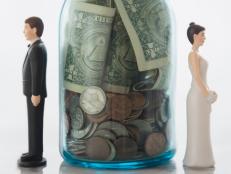Why Plastic Straws Are Out: Mostly a Good Thing, But There Is A Population of People Who Will Be Hurt
We are taking steps towards saving our oceans!
Earlier this month Starbucks announced plans to eliminate plastic straws by the year 2020 and replace them with "adult sippy cups." Other companies and even cities have followed suit, including Marriott, SeaWorld, Hyatt, Royal Caribbean the City of Santa Barbara (along with styrofoam containers) amongst others. This is a giant leap towards cleaning up our oceans of plastic, which the Ocean Conservancy estimates about 8 million tons of plastic waste end up the world's oceans each and every year.

When plastic enters the ocean it can be easily mistaken for food by many animals, in fact plastic has been found in more than 60% of all seabirds and 100% of sea turtle species. Plastic straws have especially come under fire because of their size, they often slip through the cracks when being recycled and can end up places such as a sea turtle's nostrils, perhaps you've seen this video. WARNING: Video is graphic.
After seeing this, it's hard not to imagine why plastic straws wouldn't be banned overall, at least that is what I thought, until, I read an article explaining that bendy straws were first invented for hospital patients who are not able to physically drink from a cup or get to nutrient sources. (I thought to myself, omg how could I overlook this, but unfortunately I don't fall in the minority on that, many people often overlook the disabled community and I think we can all be better at this, sound good?) Bendy straws are many times a life saver for people living with disabilities and something like the bendy straw makes them a bit more able bodied in a world that is largely not enabled for them. For example, Daniel Gilbert, who lives with muscular dystrophy, a disorder that causes your muscles to progressively deteriorate over time, eventually picking up a cup became too difficult for him, as he told CNN.
Jamie Szymkowiak, co-founder of the Scottish Disability rights NPO, One In Five explained why disposable bendy straws are still the best option of people with disabilities on the Greenpeace blog.
"A soggy paper straw increases the risk of choking. Most paper and silicone alternatives are not flexible, and this is an important feature for people with mobility related impairments. Metal, glass and bamboo straws present obvious dangers for people who have difficulty controlling their bite, as well as those with neurological conditions such as Parkinson's. Some disabled people use straws when drinking coffee or eating soup, yet most of the alternatives, including the leading biodegradable straw, are not suitable for drinks over 40?C. In addition, re-useable straws in public places are not always hygienic or easy to clean."
Rightfully so, Gilbert and others with disabilities fear that limiting plastic straws would limit their accessibility, for example American Airlines is plans to remove straws from their service. In addition, metal straws do not offer the same safety and flexibility as plastic bendy straws and cardboard straws tend to dissolve, and could be swallowed, as explained by a Facebook post by the Disability Rights Washington. Disability activist groups have taken action and Starbucks released the following statement:
"Starbucks offers, and will continue to offer, straws to customers who need or request them in our stores. Starbucks recent announcement about straws will not impact the ability of those who need straws to access them. We take an inclusive design approach to all packaging to ensure that all customers will be able to enjoy their Starbucks beverages."
While banning plastic straws is a positive and no doubt, vital, step forward for our oceans and future generations to enjoy them, we must also think to provide alternatives for people who need the flexibility of a bendy straw.









.jpg.rend.hgtvcom.231.174.suffix/1725650866453.jpeg)





